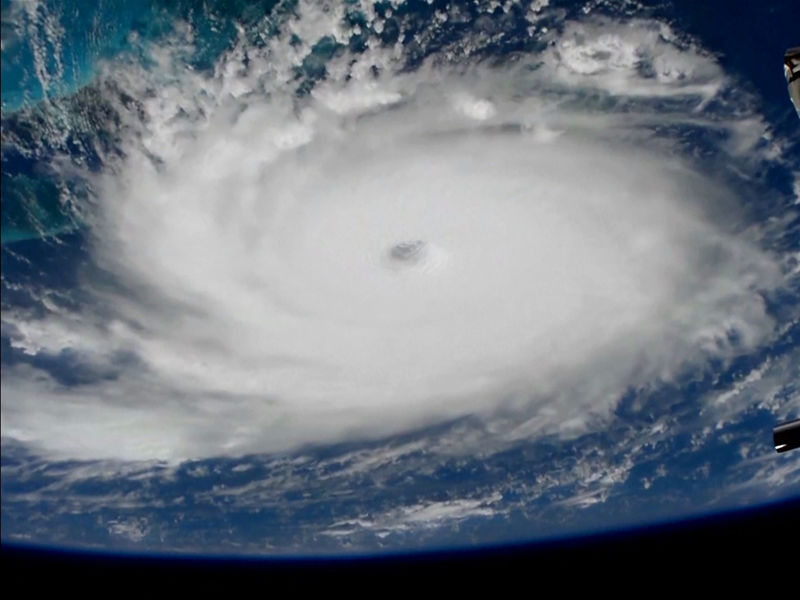By Gabriella Borter
Titusville, Fla. (Reuters) - Hurricane Dorian battered the Bahamian islands of Great Abaco and Grand Bahama early on Monday, peeling off roofs, toppling cars and snapping power lines as rising floodwater threatened to engulf houses.
The second-strongest Atlantic storm on record was forecast to pound the archipelago through the day, then move towards the east U.S. coast - where authorities ordered more than a million people evacuated in Florida, South Carolina and Georgia.
The slow-moving, category five storm left the Bahamian islands covered with twisted metal and splintered wood. There were no immediate estimates of casualties.
Winds gusting up to 200 mph (322 kph) destroyed or damaged more than 13,000 homes, the International Federation of Red Cross and Red Crescent Societies said.
Residents posted images online of water rising up the side of their houses as the National Hurricane Centre warned of a possible storm surge that could push destructive waves higher than many roofs in the islands.
As of 5 a.m., Dorian was stalled atop the Grand Bahama Island barely drifting westward at 1 mph (2 km/h).
The hurricane was about 125 miles (200 km) from the Florida coast, parts of which were being evacuated, as it crawled westward.
Palm Beach County, the third most-populated county and home to President Donald Trump's Mar-a-Lago resort, was among those with partial mandatory evacuations. Other counties announced voluntary evacuations.
"This looks like it could be larger than all of them," Trump said during a briefing with the Federal Emergency Management Agency (FEMA).
Farther north, South Carolina Governor Henry McMaster ordered mandatory evacuations for parts of eight coastal counties effective at noon (1600 GMT) on Monday.
Georgia Governor Brian Kemp ordered evacuations in all or parts of six coastal counties also effective at noon on Monday.
Even a glancing blow from one of the strongest storms ever to menace Florida could bring torrential rains and damaging winds, the NHC said.
"The hurricane will move dangerously close to the Florida east coast late Monday through Tuesday night," the NHC said.
Dorian is the strongest hurricane on record to hit the northwestern Bahamas as a life-threatening Category 5 storm on the five-step Saffir-Simpson Wind Scale.
It was tied with Gilbert (1988), Wilma (2005) and the 1935 Labour Day hurricane for the second-strongest Atlantic hurricane on record, based on maximum sustained winds. Allen in 1980 was the most powerful, with 190 mph (306 kph) winds, the NHC said.
Julia Eaddy, 70, in Titusville, Florida, said she and her husband had ridden out several hurricanes before and were not fazed by the forecast. "I think it will be more of the same," she said.
Several gasoline stations around Titusville were closed. Many grocery stores were open but boarded up. Inside, shelves emptied out fast.

Dorian is expected to remain a hurricane for the next five days and move northwest along or near the U.S. east coast, forecasters said.